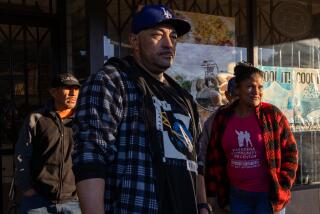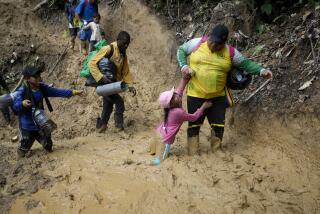It’s Harsh, but Some Children Must Work
People in Pakistan, and especially in Lahore, are shaken by the gory details of more than 100 young boys sexually molested and then killed by a serial killer. Details of these terrible killings are still murky, and there is suspicion that a gang, and not just one person, was luring runaway kids with money and offers of employment.
Apart from being a great tragedy, this case has once again forced the public to question how a person or a gang was able to lure and then kill more than 100 children in a span of a few months in Lahore without police or anyone else suspecting that something was terribly wrong.
Who were these children? All of them came from poor families. Many were runaways who were forced to work in places where they were abused. The killer or killers recruited most of the boys as domestic or workshop workers, offering money, some recreation facilities and even video games. The case also shows the extent of poverty and the dangers of the domestic working environment.
The majority of poor kids in Pakistan work not in export-oriented jobs but in local industry, where there are long working hours, very low salaries, physical abuse and, in some cases, sexual abuse.
I am not, in any way, a supporter of child labor. In my opinion, every child should have loving and caring parents, good food, good medical care and comprehensive education. I also don’t like to see any child working in factories or anywhere else.
Reality, however, is much different. The question of why children in the developing countries work is not a difficult one to answer. It’s not because there are no laws against child labor in these countries. It’s not because there is no democracy in these countries. It’s not because there is social acceptability of child labor in their respective cultures. They work because they are poor.
The recent drive to push kids out of export-oriented factories is another example of how our actions sometimes hurt the very people we intend to help. President Clinton, in his speech at the World Trade Organization meeting in Seattle, proudly declared that the group’s policies have removed 7,000 Pakistani children from softball-making factories. Removed them, but where have they gone?
Clinton claimed that they have gone back to school. I wish it were so, but after living more than 30 years in Pakistan and knowing the working environment, I would safely bet that not even 10% of these children have gone back to school. Children’s rights activists are successful in removing these kids from factories--where they may have higher salaries, better working environments and a chance to learn higher skills--and pushing them into a bleak future.
I don’t want a single child to work. I don’t want any multinationals to abuse our workers and environment. But first things first. If work is inevitable for these children, I want them to have safer working conditions and better salaries. Local industry does not have potential to provide that. Poverty is more dangerous for these kids than working in a Nike factory.
More to Read
Sign up for Essential California
The most important California stories and recommendations in your inbox every morning.
You may occasionally receive promotional content from the Los Angeles Times.










